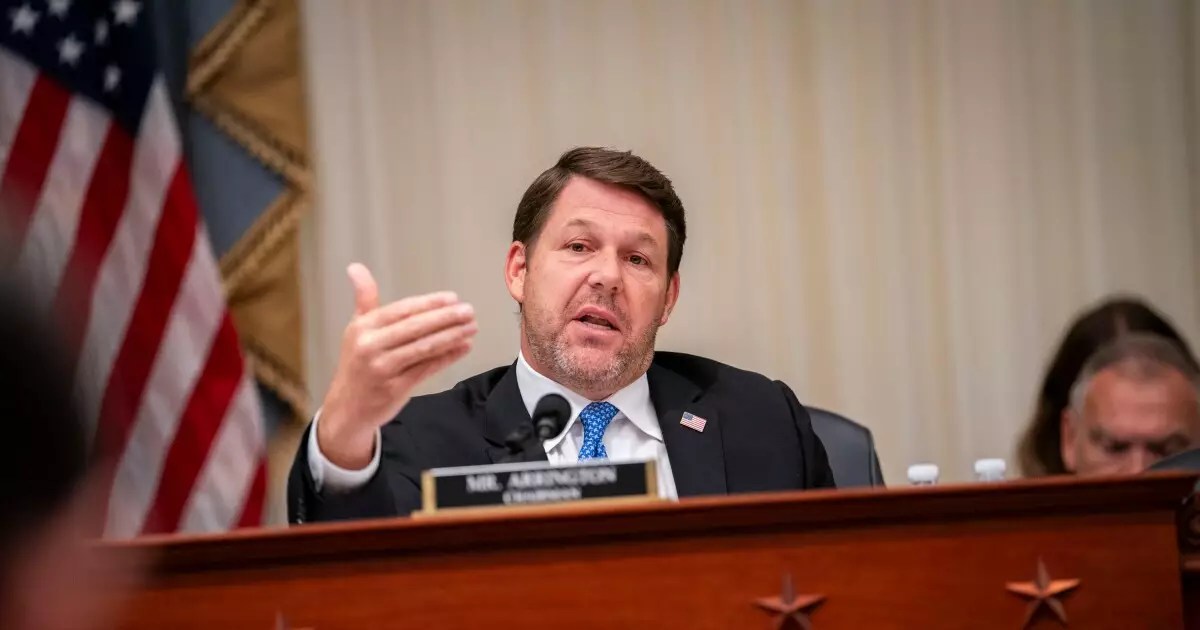The ongoing clash within the U.S. government regarding the fiscal year 2025 budget is more than just a mundane debate over numbers. It represents a microcosm of broader ideological battles that could reshape the American socio-economic landscape for years to come. The House of Representatives is preparing to confront a budget resolution that the Senate hastily approved, and while the situation may seem standard within legislative corridors, the stakes have never been higher. Conservative legislators are voicing strong discontent, likening the Senate’s proposal to nothing more than a half-hearted approach that misses the mark of what voters truly expected.
The criticisms arise from revered figures within the party—people who believe that the proposed budget has strayed far from the original House resolution and has diluted crucial tax cut discussions. This dissatisfaction underpins the need for a strong cohesive voice in Congress that stands firm against fiscal irresponsibility. The current GOP leadership must reconcile disparate factions within its ranks while maintaining a strategic front capable of tackling existing societal issues. The juxtaposition of the Senate’s model with the House’s ambitious framework illustrates the fragile state of financial governance in our nation.
Reconciliation: A Double-Edged Sword
One of the paramount strategies at hand is the reconciliation process, a legislative tactic that seems deceptively simple on the surface. The GOP hopes to maneuver this procedure to secure vital tax cuts, extend President Donald Trump’s legislative promises, and ultimately restrain federal spending—all while sidestepping potential hurdles with Democrats. However, the reconciliation process also carries significant risks. The reliance on a “current policy baseline” could, in theory, allow for greater short-term gains but at what long-term cost? The potential increase in federal deficits could set a dangerous precedent for future governance, undermining fiscal accountability in a world where every dollar counts.
What is particularly concerning is the looming threat of changes to the municipal bond tax exemption, a vital lifeline for local governments and infrastructure projects. As lawmakers scramble to balance budgets and demonstrate fiscal responsibility, they may inadvertently undermine an essential tool for economic stability and local development. This gamble raises critical questions about whether cutting costs should come at the expense of community growth and welfare. The short-sightedness in prioritizing certain tax cuts over others is a reflection of a broader systemic issue: governance that operates without consideration of the long-lasting implications on citizens.
The Disparate Voices Within the GOP
There exists a palpable divide within the Republican Party—a reality that could derail the ambitious budget efforts. House Speaker Mike Johnson, among others, has rallied for unity, urging Republicans to consolidate their support for the budget while stressing that cuts must not undermine essential services. This framework serves as a reminder that while fiscal conservatism is a noble pursuit, it should not come at the expense of programs that provide a safety net for millions.
Fiscal conservatives such as House Budget Chair Jodey Arrington openly criticize the Senate’s approach, labeling it unserious and highlighting the dangers of ignoring enforceable offsets. This discontent is not just mere rhetoric; it reflects genuine fears of increasing national debt, which could trigger a crisis at any moment. The GOP cannot afford to alienate its core supporters while pandering to special interests disguised as tax legislation. What we must ask ourselves is whether the party weighs the immediate political gains over long-term national interests. The confidence of American voters hinges on this very dilemma.
Time is of the Essence: Are We Prepared?
The political clock is ticking, and the urgency for substantial fiscal reform is palpable. As the debt ceiling approaches, congressional leaders are scrambling not just to pass a budget, but to craft one that inspires confidence. The upcoming days could very well determine the direction of America’s fiscal future. Proponents and opponents alike will play critical roles in this ongoing saga, but the looming specter of compromise and conflict persist.
Amid these pressures, the Republican Party faces an existential crisis—one that will define its relevance in the 21st-century political landscape. By remaining steadfast and determined to address our nation’s financial priorities, while remaining mindful of the social contract with its citizens, the party can reassert itself as a champion of not only fiscal conservatism but also the principles of good governance. Without such a commitment, however, we risk spiraling into a fiscal abyss fueled by shortsighted policies and divisive politics. This pivotal moment calls for introspection and courage from every lawmaker determined to protect the American dream.


Leave a Reply